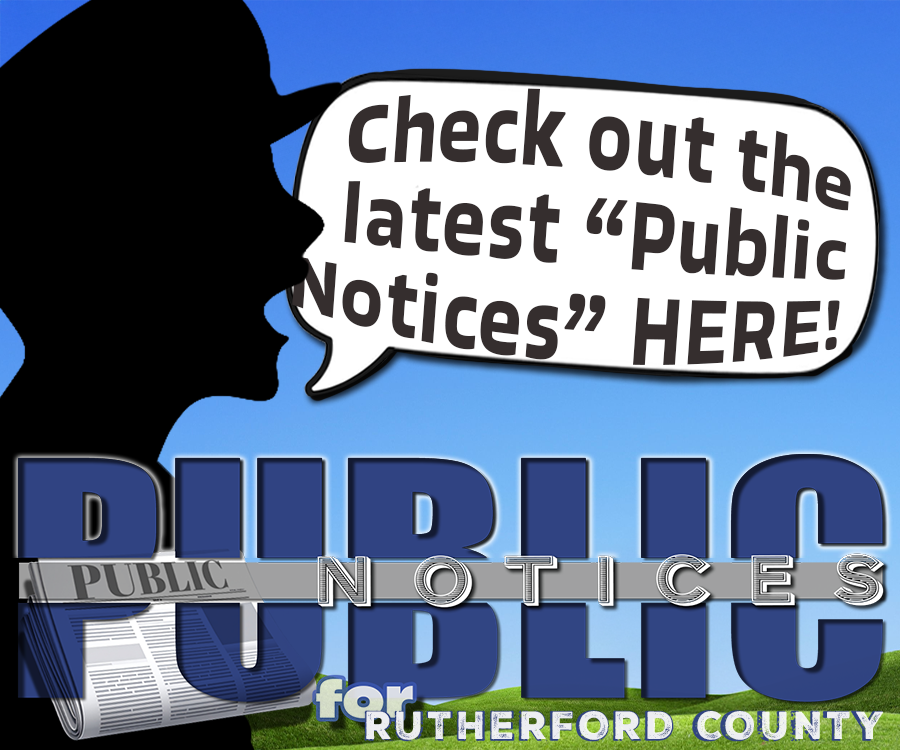Rover, the City's public transportation service is seeking public input for a study on how Rover operates and service can be enhanced. The request for public comment coincides with a City of Murfreesboro Transportation Department initiative to conduct a comprehensive study of the Rover transportation service.
"We want to ensure that Rover continues to provide effective and efficient service to riders of the system," said Transportation Director Jim Kerr. "Fully analyzing the system, including whether current resources should be reallocated for maximum public benefit, is one of the main objectives of the operational analysis."
The last TDOT operational study for Rover was performed in 2010 and needs have changed. The rapid growth of Murfreesboro requires that the City engage in a substantive strategy to expand service and increase ridership. A major aspect of developing an effective strategy to increase Rover ridership begins with a proper analysis of user groups, days and times of transit use, and public service needs currently unmet by the existing transportation service.
TDOT's Multimodal Division utilizing 5303 Federal funding has hired a consultant to conduct a comprehensive operational analysis of the Rover system. The analysis will be divided into three major phases: 1) data collection and analysis, 2) alternative development and stakeholder review, 3) and plan development.
Phase I: Data Collection and Analysis
The Rover study began Aug. 9th with a kickoff meeting involving representatives of a steering committee from the City Transportation Department and Tennessee Department of Transportation (TDOT). Two future public meetings will be scheduled this fall to present findings and garner further public input. The steering committee and consultant would broadly be tasked with the following in phase 1 of the plan:
- Analyzing current service utilization through fixed-route on-board counts.
- Conducting a rider survey and transfer analysis of all routes including ridership characteristics, passenger characteristics, demographics, payment choices, and RTA usage (e.g. students, seniors, work-trips).
- Describing current local and regional development patterns to include major travel nodes and activity centers within the service area (commercial, employers, healthcare facilities, social service agencies, educational institutions, housing).
- Identifying service issues to include route alignments, increasing routes, ITS integration, innovative service delivery, funding challenges, external agency coordination, and App solutions.
Phase II: Alternative Development and Stakeholder Review
- Describing current and projected funding levels.
- Identifying service alternatives based on review and analysis of phase 1 data collection.
- Scheduling two public meetings to provide opportunity for citizens to hear a presentation of the key findings, proposed service goals and proposed service alternatives. The public will also be invited to offer comment on the proposals.
Phase III: Development of Plans
- Preparing an Action Plan with proposed changes, prioritized time frames, staffing and budget requirements, funding sources, and implementation.
- Developing the supporting Capital Plan for replacement and expansion of buses, necessary amenities (shelters, lighting, benches, etc.), new facilities, transit points, and technology.
The City will begin actively soliciting bids for the final design and construction services phase of a new Transit Station in late August. The Murfreesboro City Council voted April 6, 2017, to authorize a Memorandum of Agreement (MOU) between the Federal Transit Administration (FTA) and the Tennessee State Historic Preservation Officer (TNSHPO) regarding federal grant funds of an $11 million Murfreesboro Transit Station. The full-service bus transit facility is planned on a 2.89-acre site located at West Main Street and Bridge Avenue.
The proposed full-service bus transit facility for the Rover system will include a passenger waiting and passenger loading and unloading areas, bus storage, parking, and support amenities. City Council first approved the Murfreesboro Transit Station in 2013.
To provide input on the Rover system, citizens are urged to contact Assistant Transportation Director Russ Brashear at rbrashear@murfreesborotn.gov or call 615-893-6441.





